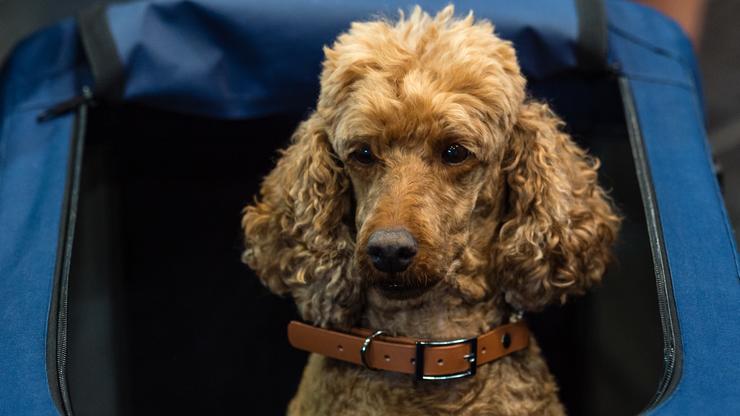
PETA Insists Term "Pet" Is Derogatory, Suggests Using "Companion" Instead
 68
68  69
69 Jennifer White, senior media officer at PETA, appeared on Good Morning Britain on Tuesday, to speak to hosts Piers Morgan and Susanna Reid about the use of the term “pet” to refer to one’s domestic animals. According to Jennifer, the animal rights organization, which stands for People for the Ethical Treatment of Animals, feels that the word “pet” is derogatory and suggests that people should stop using it.
“A lot of people at home who have dogs or cats will call them ‘pets’ and refer to themselves as ‘owners,’ and this implies that the animals are a possession, like a car for example,” Jennifer explained to the hosts, who were not buying it. “When you refer to animals, not as the living beings they are, but as an inanimate object, it can reflect our treatment on these animals.” A debate over the various phrases that PETA wants to change to be less animal-centric, such as “take the bull by the horns,” then erupts, but ultimately the discussion leads back to PETA’s feelings about the word “pet.”
“We don’t hate the word ‘pet,'” Jennifer clarifies. “We’re encouraging people to use a better word, like ‘companion.'” Piers then insists that PETA would have the change the name of the organization since the title contains the word “pet,” but Jennifer says the point doesn’t apply to the company’s name since PETA is an acronym. “[The word ‘pet’] is not offensive, we’re not telling anyone it’s offensive,” she explains. “Animals aren’t offended by it, we’re not offended by it. We’re suggesting that people could use the word ‘companion.'” The president of PETA, Ingrid Newkirk, has also suggested that our language be adjusted when describing these animals, indicating that a domestic animal is a “whole individual, with emotions and interests.”
 Neilson Barnard/Getty Images
Neilson Barnard/Getty Images
“Animals are not pets—they are not your cheap burglar alarm or something which allows you to go out for a walk. They are not ours as decorations or toys, they are living beings,” the activist said. “How we say things governs how we think about them, so a tweak in our language when we talk about the animals in our homes is needed.”


